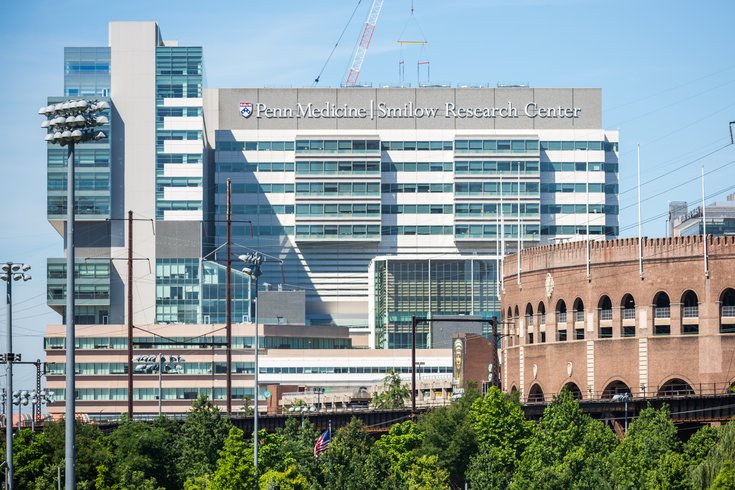
January 23, 2018
 Thom Carroll/PhillyVoice
Thom Carroll/PhillyVoice
The Smilow Center for Translational Research at the University of Pennsylvania.
A study that included University of Pennsylvania researchers recently found that a new, two-week therapy treatment can help military service members suffering from post-traumatic stress disorder.
The findings, published on Tuesday in the Journal of the American Medical Association, state that a clinical trial of an expedited, two-week-long Prolonged Exposure therapy was found to be as effective in active military service members as the traditional PE treatment, typically given over the course of eight weeks.
Calling the study the first of its kind, a press release from the University of Pennsylvania states that about half of those treated with the two-week program had reached remission, while "many others demonstrated substantial relief from their symptoms."
"This is critical for the hundreds of thousands of post-9/11 combat veterans affected by PTSD and can do so much to improve lives and assist with military readiness," Edna Foa, a clinical psychology professor at Penn who took part in the study, said in a statement.
Overall, 370 military service members participated in the randomized clinical trial.
Foa developed PE, which is a form of cognitive behavioral therapy designed to teach those with PTSD to face and process a traumatic event rather than avoiding triggers that remind them of their trauma.
The federally funded research was conducted at Fort Hood by researchers from Penn Medicine, the University of Texas Health Science Center at San Antonio and the STRONG STAR Consortium, a multi-institutional research consortium funded by the U.S. Departments of Defense and Veterans Affairs to develop more effective treatments of PTSD in active military personnel and recently discharged veterans.
More on the research can be found here, while the study itself can be found here.